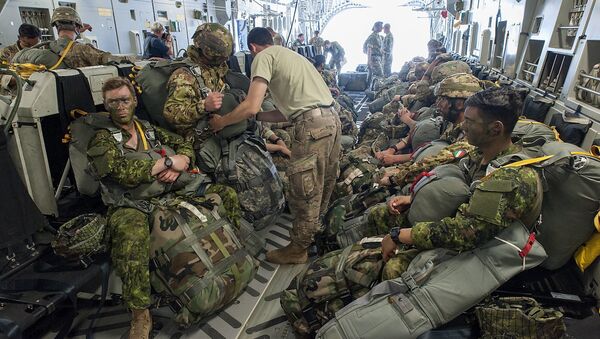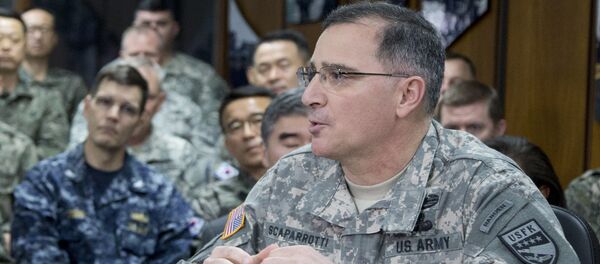The European Reassurance Initiative, which began in 2014, may not have sufficient resources to fortify NATO’s eastern flank, according to an Inspector General report released this week. The US Joint Chiefs of Staff will be reevaluating the command’s troop mix.
The Pentagon was moved to implement the initiative by the conflict in eastern Ukraine, which prompted Washington to increase its presence in a region, a reversal of the steady drawdown that had been in process since the end of the Cold War.
The initiative was designed to "reassure allies of the US commitment to their security and territorial integrity as members of the NATO Alliance," according to the Center for Strategic and International Studies (CSIS). Through ERI, the US has increased its investment in infrastructure, prepositioned equipment, strengthening partnership capacity and training and exercises.
Now, however, the initiatives goals may be overtaxing its capabilities. As the command grew in size and intensity, it has found itself overextended as its focus has shifted away from reassuring regional allies to keeping an eye an Moscow.
"The sustainability of ERI is at risk because support for ERI imposes new requirements on USEUCOM and its subordinate commands without an equivalent increase in force authorizations," the Inspector General report reads.
The Inspector General has fielded concerns over there being "too few operational forces available to support ERI" from senior military officials in Europe, according to Stars and Stripes. The officials told the defense watchdog that shortages were impacting a number of exercises, limiting the possibility of oversight and making the ERI’s pace of growth unsustainable.
The ERI is marked to receive $4.8 billion in the White House’s 2018 budget, which is $1.4 billion more than it received for 2017. Instead of coming from the Defense Department’s regular budget, which plans for needs five years in the future, money for ERI is taken out of an annual contingency fund, making its levels unpredictable.
According to the report, "As a result, USEUCOM and [Operation Atlantic Resolve] countries may be unable to sustain ERI’s contribution to allied and partner military capabilities."
EUCOM spokeswoman Meghan Henderson said that funds for the initiative have helped it to conduct complicated advanced training and other benefits.
"This requires that we return to our historical role as a command that is capable of executing the full-spectrum of joint and combined operations in a contested environment," she said. "Accordingly, we are adjusting our posture, plans and readiness to respond to possible future conflicts."





